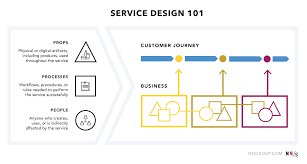The Basics of Digital Marketing for Beginners
In today’s digital age, having a strong online presence is essential for businesses of all sizes. Digital marketing offers a cost-effective way to reach a wider audience, engage with customers, and drive sales. If you’re new to the world of digital marketing, here are some key concepts to help you get started:
Understanding Your Audience
Before diving into digital marketing strategies, it’s important to understand your target audience. Identify their demographics, interests, and online behavior to tailor your campaigns effectively.
Creating a Website
Your website is the cornerstone of your digital presence. Ensure it is user-friendly, mobile-responsive, and optimized for search engines to attract organic traffic.
Search Engine Optimization (SEO)
SEO helps improve your website’s visibility on search engines like Google. Focus on keyword research, quality content creation, and building backlinks to rank higher in search results.
Social Media Marketing
Utilize social media platforms such as Facebook, Instagram, and Twitter to connect with your audience, share content, and drive engagement. Develop a consistent posting schedule and use analytics to measure performance.
Email Marketing
Email marketing remains one of the most effective ways to nurture leads and convert them into customers. Build an email list, create personalized campaigns, and track metrics like open rates and click-through rates.
Pay-Per-Click Advertising (PPC)
PPC advertising allows you to display ads on search engines and websites based on targeted keywords or demographics. Set a budget, monitor campaign performance, and optimize ads for better results.
Analytics and Reporting
Use tools like Google Analytics to track the performance of your digital marketing efforts. Analyze data such as website traffic, conversion rates, and ROI to make informed decisions for future campaigns.
By incorporating these fundamental strategies into your digital marketing plan, you can establish a strong online presence, attract new customers, and grow your business effectively.
Top 7 Frequently Asked Questions About Digital Marketing for Beginners
- What is digital marketing and why is it important?
- How can I identify my target audience for digital marketing?
- What are the key components of a successful digital marketing strategy?
- How do I improve my website’s search engine visibility through SEO?
- What social media platforms should I focus on for digital marketing?
- What are the benefits of email marketing for beginners?
- How can I measure the success of my digital marketing campaigns?
What is digital marketing and why is it important?
Digital marketing encompasses various online strategies and tactics used to promote products or services through digital channels such as websites, social media, search engines, email, and more. It is crucial for businesses as it allows them to reach a larger audience, engage with customers in real-time, target specific demographics effectively, and track performance metrics accurately. In today’s digital landscape, where consumers are increasingly turning to the internet for information and shopping, having a strong digital marketing strategy is essential for businesses to stay competitive and drive growth.
How can I identify my target audience for digital marketing?
Identifying your target audience for digital marketing is crucial for the success of your campaigns. Start by conducting market research to understand the demographics, interests, and behaviors of your potential customers. Utilize tools like Google Analytics, social media insights, and customer surveys to gather valuable data. Create buyer personas that represent your ideal customers based on this information. Tailor your messaging, content, and advertising strategies to resonate with these personas effectively. Regularly analyze the performance of your campaigns and adjust your targeting criteria as needed to ensure you are reaching the right audience with the right message at the right time.
What are the key components of a successful digital marketing strategy?
When it comes to crafting a successful digital marketing strategy, several key components play a crucial role in driving results. Understanding your target audience and their preferences is essential for creating tailored campaigns that resonate with them. A well-designed website that is optimized for search engines and user experience serves as the foundation of your online presence. Leveraging social media platforms effectively to engage with your audience and build brand awareness is another vital component. Additionally, incorporating email marketing to nurture leads and drive conversions, along with utilizing pay-per-click advertising for targeted reach, are integral parts of a comprehensive digital marketing strategy. Regularly analyzing data and adjusting strategies based on performance metrics ensures continuous improvement and success in the ever-evolving digital landscape.
How do I improve my website’s search engine visibility through SEO?
Improving your website’s search engine visibility through SEO involves implementing various strategies to enhance your online presence and attract organic traffic. Start by conducting thorough keyword research to identify relevant terms and phrases that your target audience is searching for. Optimize your website’s meta tags, headings, and content with these keywords to improve its ranking on search engine results pages. Focus on creating high-quality, original content that provides value to users and encourages engagement. Building backlinks from reputable websites can also boost your site’s authority in the eyes of search engines. Regularly monitoring and analyzing your website’s performance using tools like Google Analytics will help you track progress, identify areas for improvement, and refine your SEO strategy for optimal results.
What social media platforms should I focus on for digital marketing?
When starting out in digital marketing, a common question that beginners often ask is, “What social media platforms should I focus on for digital marketing?” The answer to this question largely depends on your target audience and business goals. Generally, popular platforms like Facebook, Instagram, Twitter, LinkedIn, and Pinterest are great starting points for reaching a wide range of audiences. Conducting market research to understand where your target demographic spends their time online can help you determine which platforms will be most effective for your digital marketing efforts. By choosing the right social media channels strategically, you can engage with your audience, build brand awareness, and drive conversions effectively.
What are the benefits of email marketing for beginners?
Email marketing offers numerous benefits for beginners looking to establish a strong digital presence. One key advantage is its cost-effectiveness, allowing businesses to reach a large audience at a relatively low cost. Additionally, email marketing enables personalized communication with customers, fostering stronger relationships and increasing brand loyalty. Beginners can also utilize email campaigns to drive traffic to their website, promote products or services, and generate leads effectively. With the ability to track metrics such as open rates and click-through rates, beginners can analyze campaign performance and make data-driven decisions to optimize future strategies. Overall, email marketing presents beginners with a powerful tool to engage with their audience, drive conversions, and achieve their marketing goals efficiently.
How can I measure the success of my digital marketing campaigns?
Measuring the success of your digital marketing campaigns is crucial for evaluating their effectiveness and making informed decisions for future strategies. Key performance indicators (KPIs) such as website traffic, conversion rates, click-through rates, and return on investment (ROI) can provide valuable insights into the performance of your campaigns. Utilizing tools like Google Analytics, social media analytics, and email marketing platforms can help track these metrics and analyze the data to determine what is working well and where improvements can be made. By setting specific goals, monitoring relevant metrics, and adjusting your strategies based on data-driven insights, you can effectively measure the success of your digital marketing campaigns and optimize them for better results.



